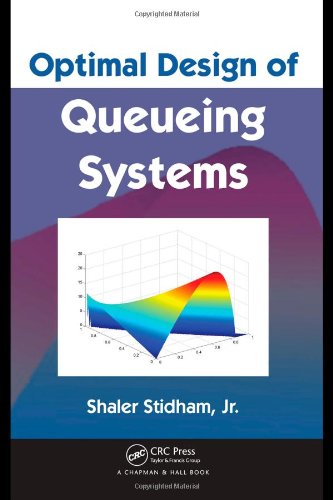

Most ebook files are in PDF format, so you can easily read them using various software such as Foxit Reader or directly on the Google Chrome browser.
Some ebook files are released by publishers in other formats such as .awz, .mobi, .epub, .fb2, etc. You may need to install specific software to read these formats on mobile/PC, such as Calibre.
Please read the tutorial at this link: https://ebookbell.com/faq
We offer FREE conversion to the popular formats you request; however, this may take some time. Therefore, right after payment, please email us, and we will try to provide the service as quickly as possible.
For some exceptional file formats or broken links (if any), please refrain from opening any disputes. Instead, email us first, and we will try to assist within a maximum of 6 hours.
EbookBell Team

4.0
56 reviewsThe First Comprehensive Book on the Subject
Focusing on the underlying structure of a system, Optimal Design of Queueing Systems explores how to set the parameters of a queueing system, such as arrival and service rates, before putting it into operation. It considers various objectives, comparing individually optimal (Nash equilibrium), socially optimal, class optimal, and facility optimal flow allocations.
After an introduction to basic design models, the book covers the optimal arrival rate model for a single-facility, single-class queue as well as dynamic algorithms for finding individually or socially optimal arrival rates and prices. It then examines several special cases of multiclass queues, presents models in which the service rate is a decision variable, and extends models and techniques to multifacility queueing systems. Focusing on networks of queues, the final chapters emphasize the qualitative properties of optimal solutions.
Written by a long-time, recognized researcher on models for the optimal design and control of queues and networks of queues, this book frames the issues in the general setting of a queueing system. It shows how design models can control flow to achieve a variety of objectives.